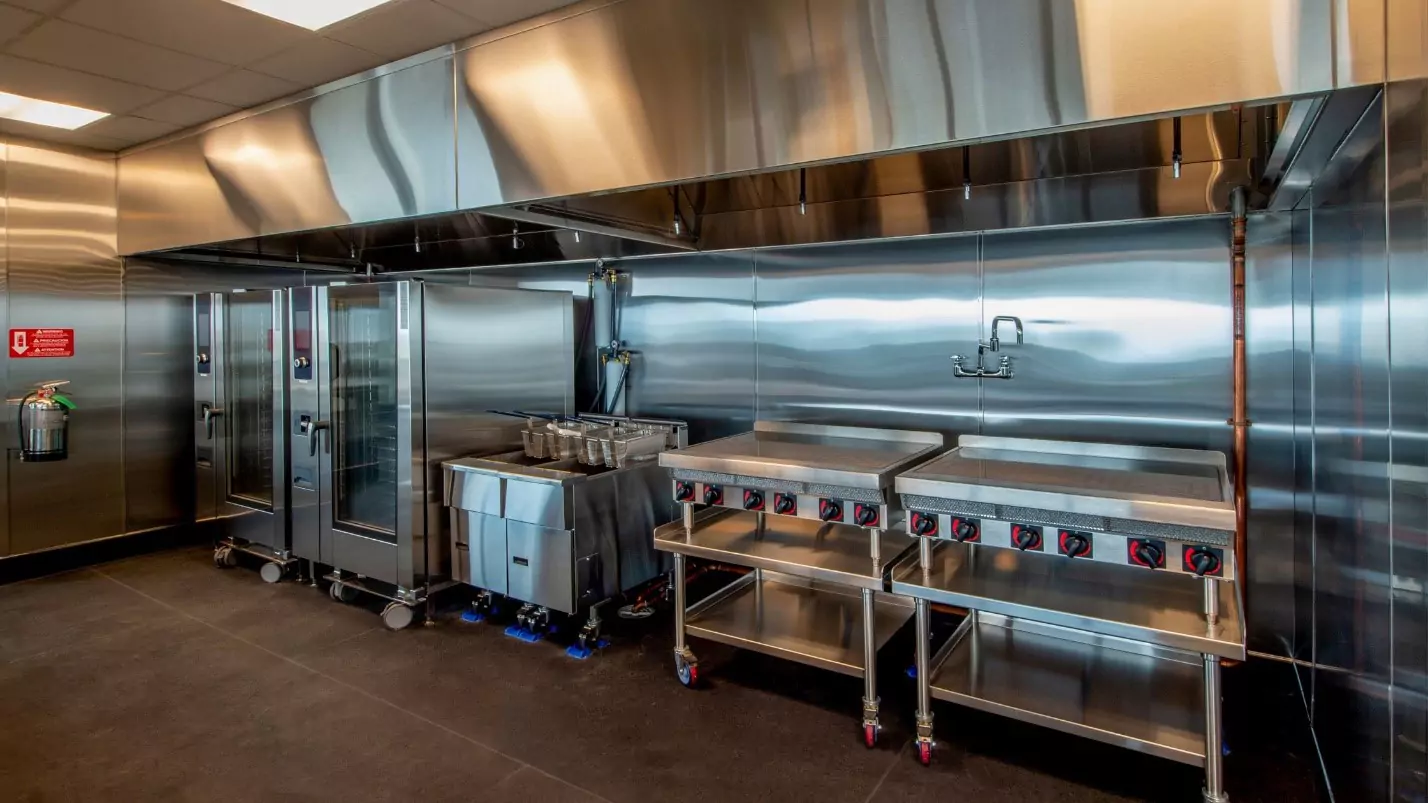Did You Know Real Estate Can Save on Your Restaurant Taxes?

As advisors at MBE CPAs, one of us specializing in full-service restaurants and the other in fast-casual franchises, we have seen how impactful a well-planned real estate strategy can be for restaurant owners. Whether you operate a full-service dining establishment or an expanding fast-casual concept, real estate plays an important role in both tax optimization and business development.
At MBE CPAs, we understand that owning a restaurant is more than just managing a business. It requires long hours, personal sacrifice, and deep dedication. That is why we design our strategies to fit your business model, aligning tax opportunities with your operational needs. While both full-service and fast-casual restaurants can benefit from real estate tax strategies, each model has unique considerations that require a customized approach.
Featured Topics:
General Principles of Real Estate Tax Savings
Cost Segregation Studies
Cost segregation studies are a commonly underutilized tool for restaurant owners. This engineering-based analysis identifies and reclassifies property components that would typically be depreciated over 39 years to shorter recovery periods of 5, 7, or 15 years.
Due to a restaurant’s need for specialized equipment, fixtures, and buildouts, cost segregation studies can significantly accelerate depreciation deductions. This acceleration creates substantial immediate tax savings, improving cash flow when it matters most, during the critical early years of operation or after major renovations.
By correctly classifying assets like specialized electrical systems for kitchen equipment or decorative elements specific to dining areas, you can increase front-load depreciation deductions while remaining fully compliant with tax regulations.
Property Tax Assessments
Property taxes represent a significant expense for restaurant owners. Many accept their tax assessments without question, potentially overpaying thousands of dollars annually. Yearly reviews of your property tax assessments help prevent these mistakes. A few points to watch for when reviewing assessments:
- Errors in square footage or property descriptions
- Overvaluation compared to similar properties
- Failure to account for functional obsolescence
- Incorrect classification of property components
A successful property tax protest can yield immediate savings that continue year after year, representing one of the highest returns on investment for your tax planning efforts.
Qualified Business Income (QBI) Deduction
The Tax Cuts and Jobs Act introduced the QBI deduction, allowing eligible restaurant owners to deduct up to 20% of qualified business income. Owning real estate can significantly help in getting the most out of this deduction.
Restaurant owners who are close to income limits that reduce QBI benefits can benefit from intentional real estate decisions. For instance, putting property ownership in a separate entity from the operating company can help secure the full deduction and provide more asset protection.
Depreciation of Assets
Beyond building depreciation, restaurant owners need to carefully manage depreciation schedules for countless assets: kitchen equipment, furniture, fixtures, HVAC systems, and technology infrastructure. The tax code offers several options, including:
- Section 179 expensing, allowing immediate deduction of qualifying property
- Bonus depreciation for eligible new and used property
- Regular MACRS depreciation for remaining assets
Proper asset tracking and depreciation planning ensure you claim every available deduction while complying with tax regulations.
Specific Considerations for Quick-Serve Restaurants (QSRs)

Restaurant Leasehold Improvements
Many QSR operators lease rather than own their locations, making leasehold improvements a critical tax consideration. These improvements, including specialized kitchen installations, drive-thru windows, and branded interior elements, can be substantial investments.
Under current tax law, qualified improvement property can be depreciated over 15 years instead of 39 years. It may also qualify for bonus depreciation or Section 179. Properly documenting and classifying these improvements helps get the most tax benefits, and also meets franchise requirements.
Multi-Location Tax Strategies
QSR operators often manage multiple locations across different tax jurisdictions, creating complexity, as well as opportunity. Thoughtful tax planning includes:
- Comparing effective tax rates across potential expansion locations
- Centralizing certain operations in tax-advantaged jurisdictions
- Managing sales tax complexities across multiple locations
- Developing systems to track location-specific tax incentives and credits
These strategies require sophisticated tracking systems and knowledgeable guidance but can yield significant savings for multi-location operators.
Land Use for Drive-Thrus
Drive-thru lanes represent valuable real estate for QSRs, often accounting for a large percentage of sales. The land allocated to drive-thrus requires careful tax planning, including:
- Proper allocation of land costs between building and land
- Special assessments related to traffic patterns and accessibility
- Potential tax implications of drive-thru improvements
Efficiency and Cost Control
For QSRs operating on thin margins, real estate tax efficiency directly impacts overall cost control. Every dollar saved through proper tax planning can help maintain competitive pricing or improve product quality. Efficient planning becomes part of the operational discipline that defines successful QSR concepts.
Specific Considerations for Full-Serve Restaurants

Building Depreciation
Full-service restaurant owners often purchase or construct their buildings, making building depreciation an essential part of their tax strategy. Targeted approaches include:
- Componentizing building systems for accelerated depreciation
- Identifying restaurant-specific elements that qualify for shorter recovery periods
- Planning renovations with tax implications in mind
- Utilizing energy-efficient building deductions when applicable
Luxury Fixtures and Decor
The distinctive atmosphere of full-service restaurants often requires significant investment in custom fixtures, artwork, decorative elements, and specialized lighting. These elements may qualify for accelerated depreciation through proper classification and documentation.
For higher-end restaurants, proper tax treatment of these assets can represent substantial deductions, providing crucial cash flow during the restaurant’s early years or following major renovations.
Property Taxes on Prime Locations
Full-service restaurants often occupy premium real estate where property taxes reflect high valuations. Approaches include:
- Regular assessment reviews with specific attention to comparable properties
- Documentation of unique aspects that might affect true market value
- Analysis of highest-and-best-use assumptions in assessments
- Thoughtful timing of improvements to manage assessment increases
Complex Building Structures
Some full-service restaurants occupy historic, architecturally significant, or otherwise complex structures. These buildings present unique opportunities for cost segregation studies that can identify substantial components eligible for accelerated depreciation.
Additionally, restaurants in historic structures may qualify for rehabilitation tax credits, providing a significant percentage of qualifying expenses as a direct tax credit rather than a deduction.
MBE CPAs' Role
At MBE CPAs, we understand that running a restaurant represents more than a business venture, it requires immense dedication. Rely on our understanding of restaurant-focused tax strategies while you dedicate your time to crafting memorable dining experiences.
Our comprehensive approach includes:
- Precision cost segregation studies designed for restaurant properties
- Property tax appeals designed to minimize your tax burden
- Proactive tax planning that anticipates industry trends and regulatory changes
- Navigation of complex multi-location tax issues
- Coordination between entity structures and real estate holdings to maximize tax benefits
It is our goal to understand your vision and implement tax strategies to protect and enhance your restaurant’s financial outlook.
Conclusion
In the restaurant industry, real estate tax planning can transform the financial performance of your business. Whether you operate a Quick-Serve franchise with multiple locations or a Full-Service establishment, proactive planning represents one of your greatest opportunities for sustained profitability.
With our guidance, your real estate decisions can create both immediate tax savings and long-term wealth building, positioning your restaurant business for long-term success.
Your culinary vision deserves financial strategies as thoughtfully crafted as your menu. For more insights on managing your restaurant’s finances, check out MBE CPAs’ Ultimate Restaurant Accounting Toolkit.
